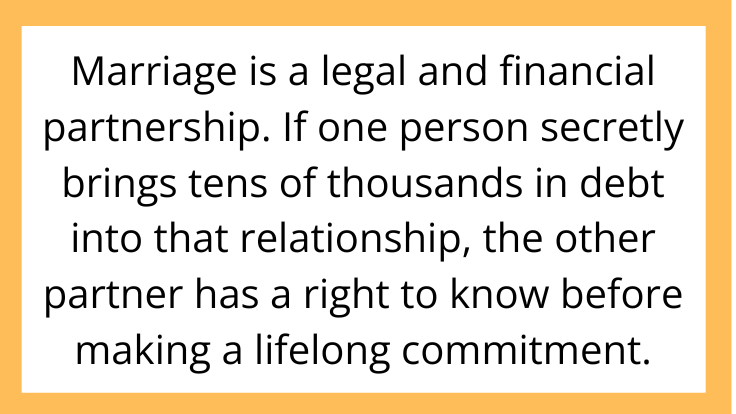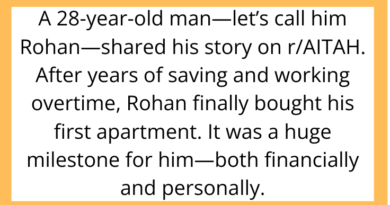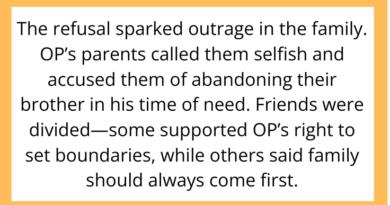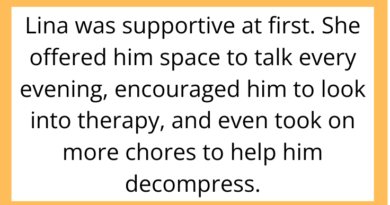AITAH for Telling My Best Friend’s Fiancé About Her Secret Debt?
Last night, I read a post on r/AITAH that left the community completely split. The poster asked if they were in the wrong for revealing their best friend’s massive secret debt to her fiancé, right before their wedding.
Was it an act of betrayal—or an attempt to protect someone from a financial time bomb? Today, we’ll unpack this tense scenario, look at the arguments from both sides, and consider whether honesty always trumps loyalty.
Here’s what happened.
The Story That Sparked the Controversy

The original poster (OP) explained that they had been best friends with “Anna” for over a decade. Over the years, Anna accumulated more than $60,000 in credit card debt. She routinely maxed out new cards, took out personal loans to pay off old ones, and hid the truth from everyone—including her fiancé, who thought she was financially responsible.
As the wedding approached, Anna confided in OP that she planned to keep the debt a secret. She claimed her fiancé didn’t need to know because she was “handling it,” though OP suspected she was only making minimum payments.
OP felt deeply uncomfortable, worried that Anna’s soon-to-be husband would be blindsided by her credit score and spending habits. After weeks of agonizing, OP decided to tell the fiancé everything.
Anna was furious and accused OP of ruining her marriage. She said it was not OP’s place to interfere and that her fiancé would have “never found out.”
The Case for Disclosure

Protecting an Innocent Person
Many commenters applauded OP’s honesty, arguing that withholding this information would be deceitful by omission.
Marriage is a legal and financial partnership. If one person secretly brings tens of thousands in debt into that relationship, the other partner has a right to know before making a lifelong commitment.
Financial stress is also a leading cause of divorce. By sharing the truth early, OP may have saved the couple from bigger problems down the road.
Transparency Builds Trust
Some felt that OP’s action, though painful, respected the fiancé’s autonomy. Entering marriage without full knowledge of each other’s circumstances is like signing a contract you haven’t read.
In this view, loyalty to your friend doesn’t mean covering up serious issues—especially when someone else will be affected.
The Argument Against OP’s Decision

Crossing Personal Boundaries
Others argued that OP overstepped. Friendship, they said, is about supporting—not policing—each other’s choices.
By going directly to the fiancé, OP broke Anna’s trust. If the goal was to help, some suggested OP could have encouraged Anna to come clean herself rather than taking matters into their own hands.
Timing Matters
Several readers pointed out that the timing—right before the wedding—was especially damaging. Even if disclosure was necessary, doing it so close to the ceremony left no time for calm discussions or financial planning. Instead, it created a high-pressure crisis.
When Does Loyalty Become Enabling?

This dilemma raises bigger questions about where to draw the line between loyalty and enabling harmful behavior.
Is it more ethical to protect a friend’s secret—or to protect an unsuspecting person from potential harm? Does the answer change when money is involved?
Some people believe friendship means standing by your friend no matter what. Others argue that true friends hold each other accountable—even when it’s uncomfortable.
Community Verdict
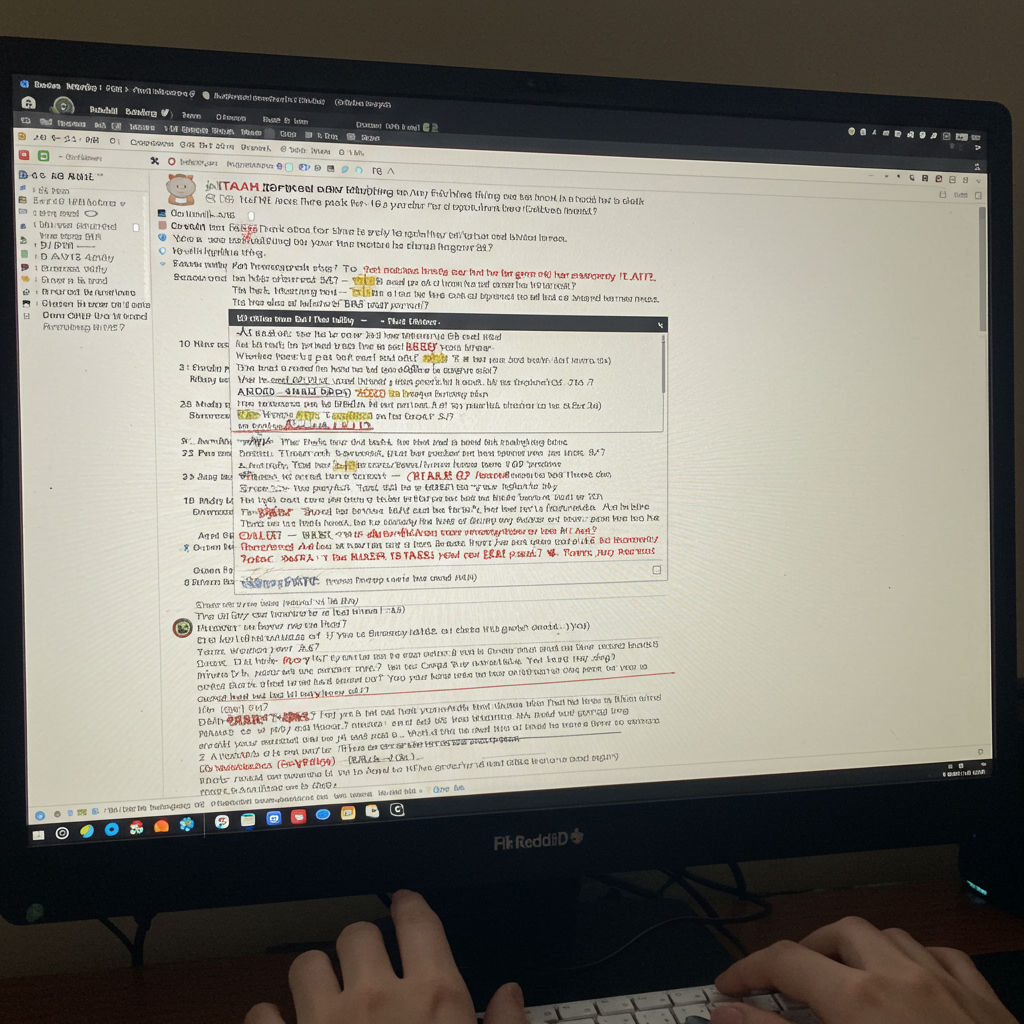
In the comment section, opinions were nearly evenly split:
-
Half said OP did the right thing, because debt can destroy trust and marriage.
-
Half said OP had no right to interfere, and their actions were an unforgivable betrayal.
This scenario shows how messy moral decisions can be. There’s no single “right” answer—only what you can live with.
Final Thoughts

Whether you side with OP or Anna, this situation is a reminder that honesty isn’t always clear-cut. Sometimes, doing what feels right for one person can deeply hurt another.
The best we can do is weigh our values—loyalty, transparency, compassion—and accept that our choices may have lasting consequences.
